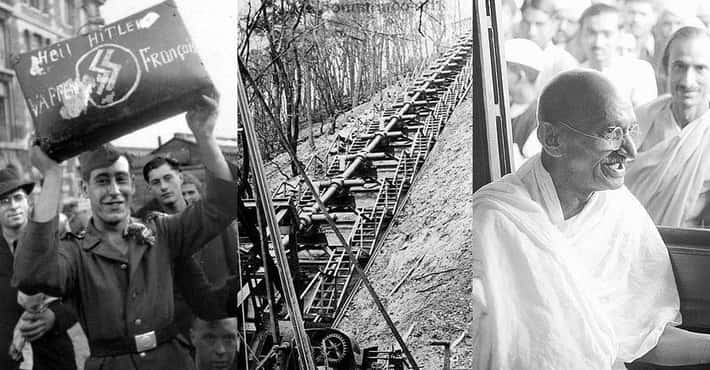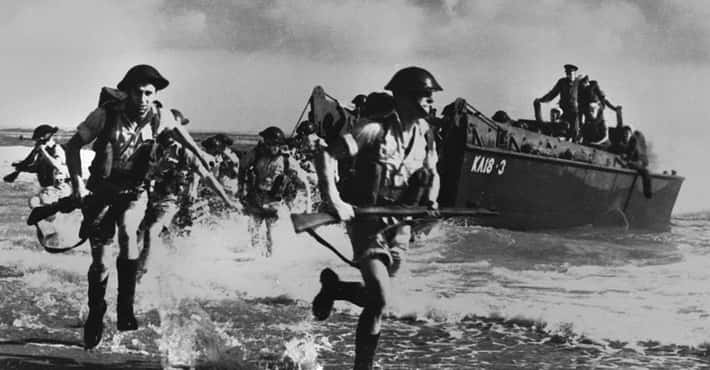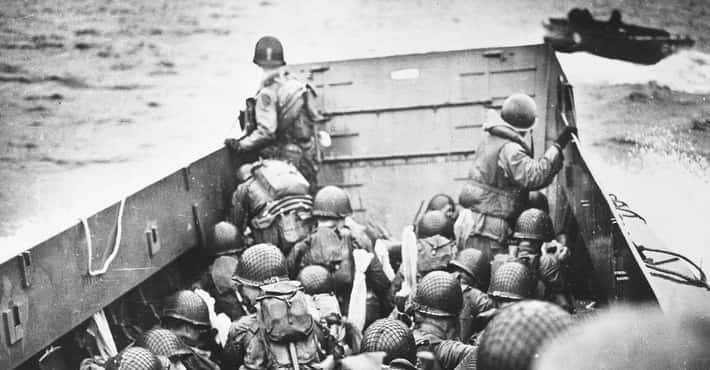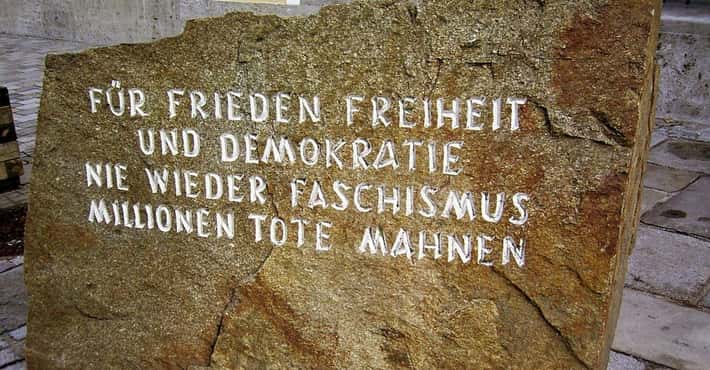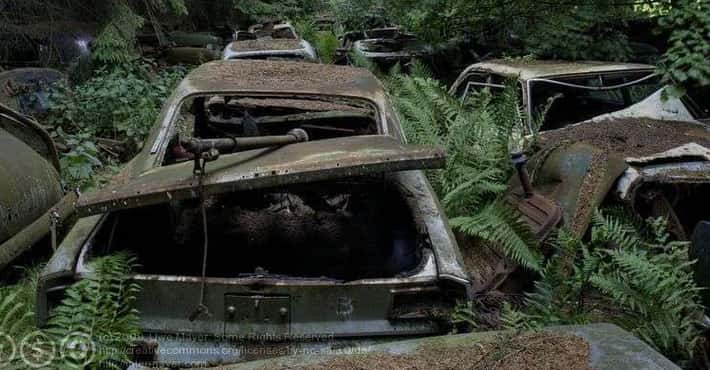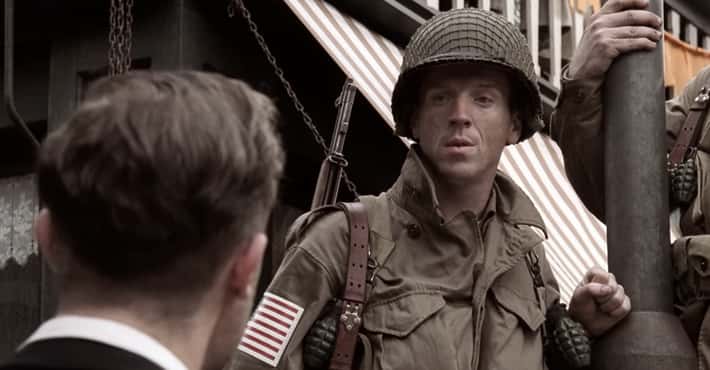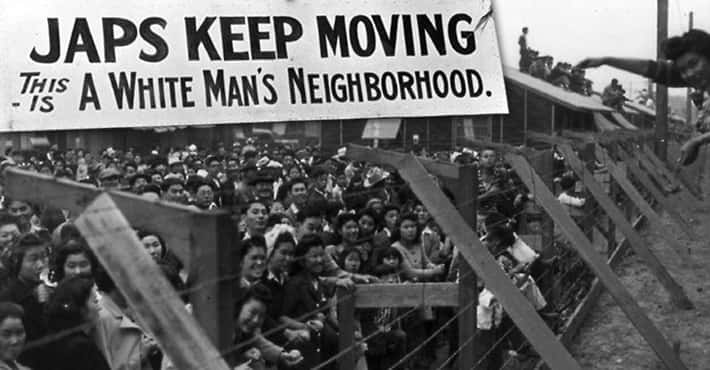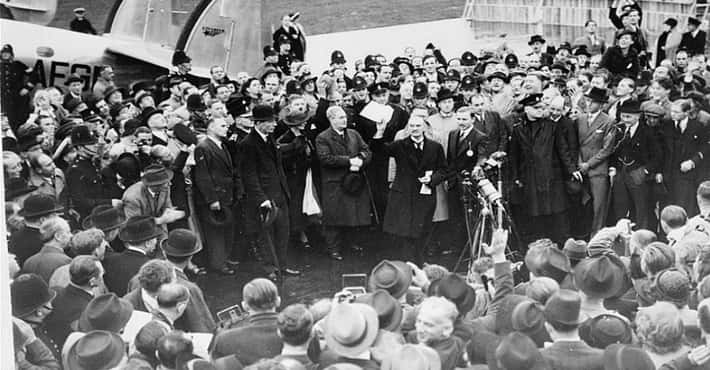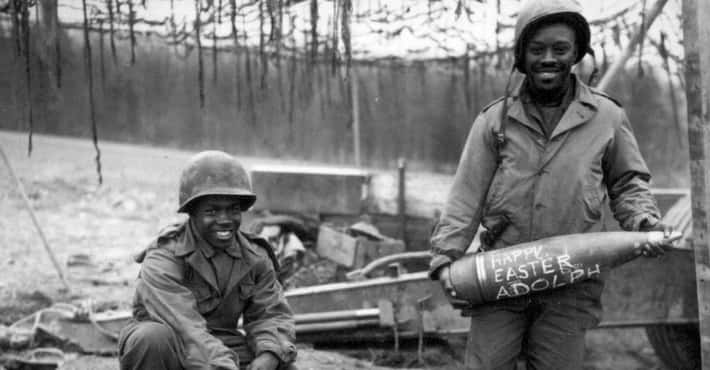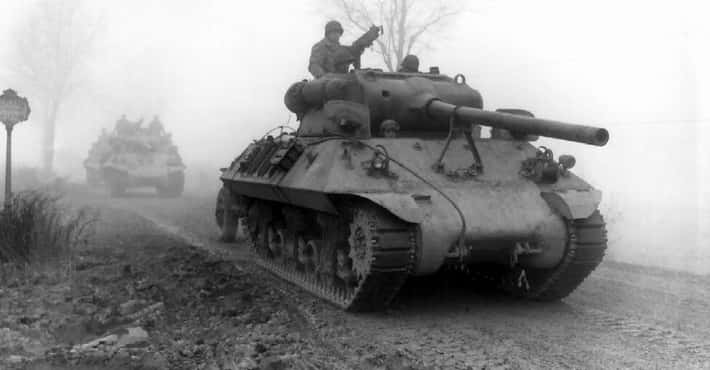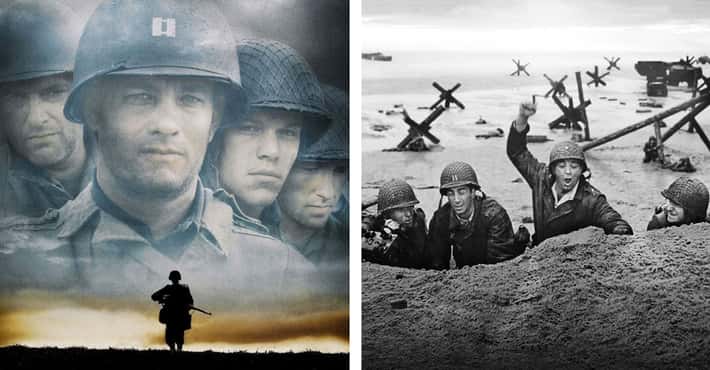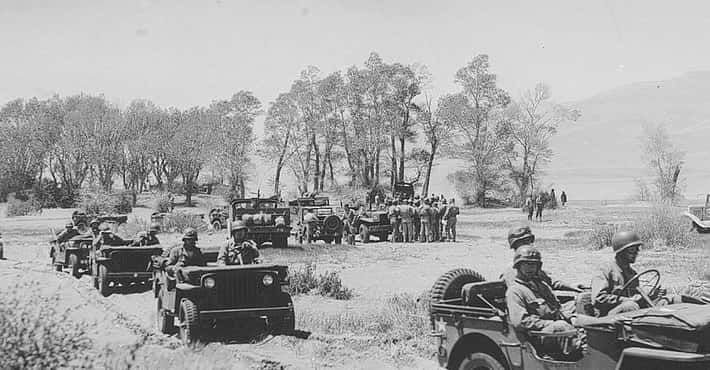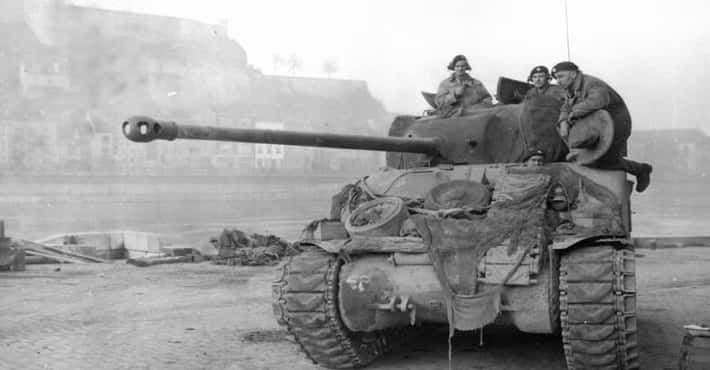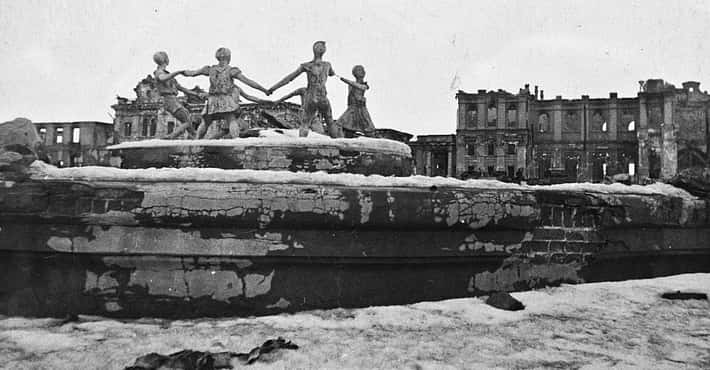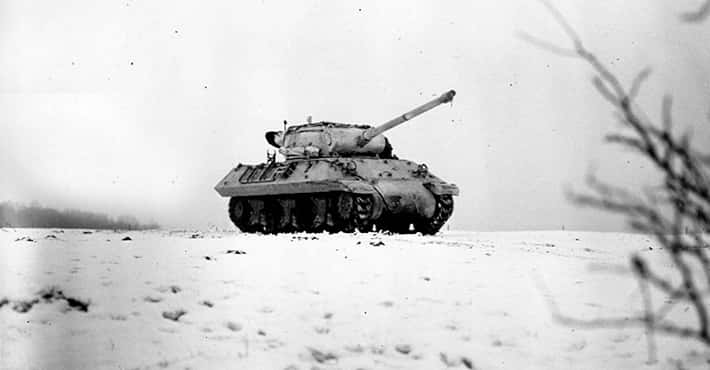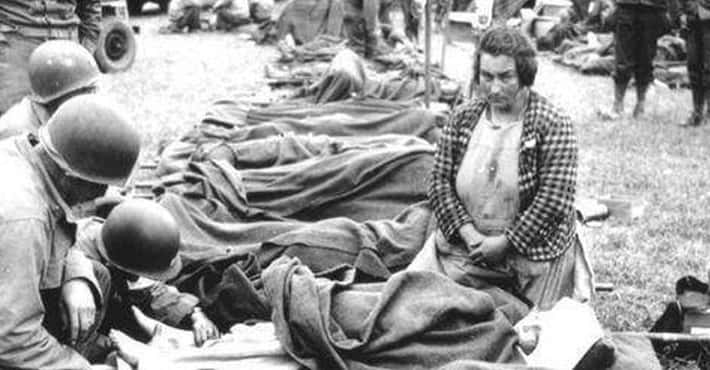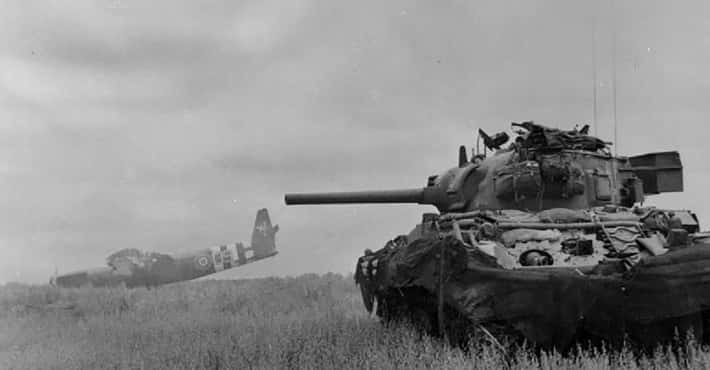German Citizens Describe What Life Was Like After WWII
Entire Communities Suffered From PTSD
Photo: Colegio de San Juan de Letran / Wikimedia Commons / CC BY-SA 4.0From Redditor /u/OneRedBeard:
After [WWII], the country suffered from collective PTSD... We were a broken, defeated, extinguished people in 1945. 60 million human beings suffering from PTSD. And knowing that not only did you lose... but also that you were on the wrong side. On the wrong side of morality, of humanity, of history.
We were the bad guys. There was no pride. Just the knowledge that we were at rock bottom, and rightfully so.
Many German Veterans Never Recovered From The Physical And Mental Torment
From Redditor /u/sw66sw:
Both my grandfathers were [involved], of course. One was younger and got drafted in '40. For his troubles, he came home with an alcohol problem and tuberculosis he caught in a POW camp. I never met him. He had three children with the wife he beat during one of his "episodes" and [passed] shortly after the youngest was born, leaving a young widow with three small children and three elderly relatives, with no money, to fend for herself.
The other one served from the first day to the last, poor sod, and then was a POW for two years (luckily with the Americans). He had shrapnel in his body for the rest of his life, caught malaria in the Russian swamps or maybe in Africa with Rommel, that plagued him until he was an old man and had to have half his stomach removed because he had so many stomach ulcers. Lost a toe in the snow in Norway.
There Was The Omnipresent Fear That It Could Happen Again
Photo: von Vitavia / Wikimedia Commons / CC BY-SA 4.0From Redditor /u/sw66sw:
[My grandfather] told me his... stories - first the funny ones and then, the older I got, they got more and more terrible. "Don't forget," he'd say, "but don't tell anyone about this." He was so ashamed. And so angry, still, 40, 50 years later.
"They took my best years, those f*cking Nazis."... we must look out for them; it can happen again," "Beware," "Pay attention to politics! Speak up," "we couldn't stop them ... maybe you can, next time."
I had it hammered into my brain, over and over and over.
Virtually Every German Citizen Was Affected By The Conflict
From Redditor /u/Aetrion:
When I was growing up in Germany in the '80s and '90s, you could ask any old person about [WWII] and they would tell you about the horrors they had seen, the friends they lost, the neighbors who disappeared...
My grandma used to tell us about how her mother would scoop up phosphorous bombs with a snow shovel and throw them in a garbage can full of water. One time she recounted a story of a girl having her throat torn out by attack dogs in front of her. She said some friends died because they played with unexploded scatter bombs that looked like pens and still yelled at us when we were kids and picked up anything in the streets because you'd never know if it was dangerous.
Many German Citizens Were Separated From Their Families
Photo: Photo Library And Archives Of Canada / Good Free Photos / Public DomainFrom Redditor /u/Youngladyof95:
It was only me and my parents that came over [to America]. Some aunts and uncles came over to the US in 1943. Prior to that, they were interned in Cuba because the US would only allow so many ships to dock and immigrants to come in.
My grandfather, on the other hand, was killed in Holland by the Nazis. He was thrown down a flight of stairs.
Many Felt Demonized In America, Where A Propaganda Effort Tried To Erase German Influence
From Redditor /u/MiltownKB:
It wasn't just the Nazis that made Germans hide their heritage. There was a huge propaganda effort and an effort during WWI to erase German culture from the US. Hell, we f*cking interned US citizens of German dissent for often no reason at all...
During WWI, internment was managed by the Enemy Alien Registration Section of the Department of Justice headed by J. Edgar Hoover... the German language was forbidden; the German-American press was heavily censored; libraries had to pull German books off the shelves; German-American organizations were targeted... I felt it appropriate to start [with post-WWI] since that was the start of the anti-German effort in the US. The history is certainly more extensive than this and in many ways only increased during WWII.
German Americans, as one would expect, resisted their demonization and the destruction of their culture in the US by rallying behind the saying “Germany is my mother; America my bride.” It didn't work. No longer able to keep both allegiances, German Americans were not only required to prove their unfailing, singular loyalty to America, but it was the duty of every American citizen to hate Germany, and by extension, Germans.
I had family interned. They lost their land, homes, and businesses. They were denied proper education and health care in the internment camps so good people within these camps would set up makeshift schools and basic medical care with what they had available. It is another truly disgusting part of our past that needs to be remembered so that we do not repeat past mistakes.
Some Tried To Hide Their German Heritage
Photo: Russell Lee / Wikimedia Commons / Public DomainFrom Redditor /u/Youngladyof95:
Well for me being 16, it took a while to adjust myself. I was scared to go on the phone because of my accent. My clothes were German... I didn't teach my children to speak German because in the late 1940s and 1950s, it was looked down upon to speak the language publicly. Although I spoke German to my husband at home, I didn't want to teach it to my children because we were Americans - not Germans.
Some German Immigrants Did Not Pass The Language On To Their Children
From Redditor /u/prestonb725:
My grandpa... left Germany right after [WWII] ended. He didn't speak German to my dad or the other kids in the family, also because it was a bit looked down upon, but it was the late '60s/[and] '70s... He was in America, and wanted his kids to be American. He would say phrases every now and then like "Ach du lieber Himmel" or sing German songs. Their neighbors down the street were German. Their kids were American, but they spoke German too, so my grandpa would speak to them in German.
It makes me sad that the Nazi past had to make so many Germans ashamed of their culture and heritage.
Jewish Germans Found America Welcoming
Photo: Library of Congress / Wikimedia Commons / Public DomainFrom Redditor /u/Youngladyof95:
[It was] hard. Because each of us came [to New York] with $100. And I started working as a nanny. The big buildings. The many people. At the time I left, the town I was from had 3,500 people. Yeah, we had a German congregation (synagogue). And then the people moved and we went to an American congregation. The neighborhood I moved to was poor, but most of them were welcoming.
In Europe, Neighborhoods Banded Together To Restore Wildlife And Rebuild Houses
Photo: German Federal Archive / Wikimedia Commons / CC BY-SA 3.0 DEFrom Redditor /u/SeegurkeK:
In school there were two classrooms. One for the young-middle and one for middle-older kids. There were set days when they (the class) would go through the forest to collect berries and pinecones and... plant new trees. The whole neighborhood helped each other, rebuilding the houses that had been damaged.
Food Was Scarce
From Redditor /u/Timerly:
Food was the biggest concern during [WWII]... and for a bit after. Americans coming to town became an attraction not unlike American troops in Middle Eastern villages today. They gave out white bread and my grandma thought getting a piece of that was the best thing ever. She got chocolate once and still remembers the packaging.
Those Captured By Soviets Waited Years To Return
Photo: National Archives and Records Administration / Wikimedia / Public DomainFrom Redditor /u/Whipfather:
A lot of families, including my dad's, had to wait for their male relatives to return from Soviet captivity even up until 1949/50. When my great-uncle finally returned to Western Germany, his family had to expend huge amounts of time and effort to nurse [him] back to health after the years of extreme malnutrition and forced labor in horrible conditions.
He had to spend a long time re-adapting to the diet, slowly working his way from thin gruel to bread and so on.
Some German Soldiers Started New Lives With Friends They Met During The Conflict
From Reddittor /u/sw66sw:
[My grandfather would] spend a lot of time alone, on his little farm or in his garden. The guy who owned the garden next to him - they had grown up together. Actually, they met in the middle of the war somewhere in a Italian forest and were friends for life, literally. When his buddy was put into an old people's home, he was even more alone.
Small Towns Struggled To Figure Out Who Was In Charge
Photo: M. Swierczynski / Wikimedia Commons / Public DomainFrom Redditor /u/Timerly:
[There was] strict church attendance, no means to travel anywhere but the next villages. Cars were pretty much gone from the streets despite the Nazi production "miracles" some years prior. No oil, no energy. Nobody actually knew who to talk to about bigger decisions right at the end of WWII. The local mayor? The American running the zone chapter? It was a big mess.
Some Eastern Front Prisoners Passed After Returning To Germany Due To Their Treatment In Captivity
From Redditor /u/Whipfather:
I remember my dad telling me a story about how one of the men who returned around the same time as my great-uncle actually died after returning because his mangled body simply couldn't cope with the sudden change in diet and environment.











